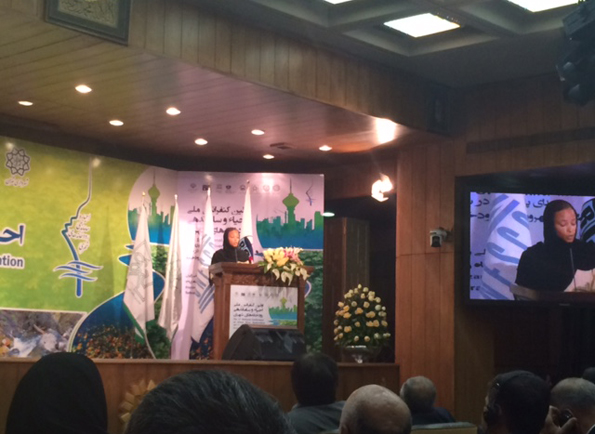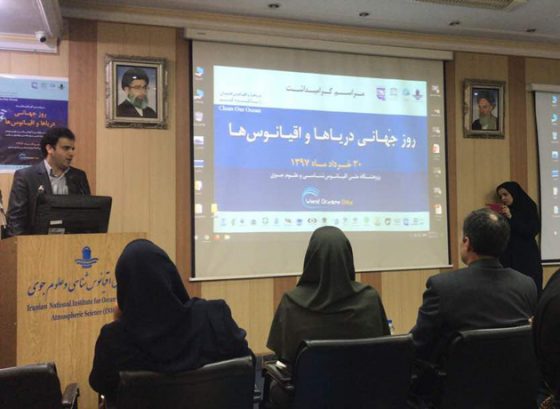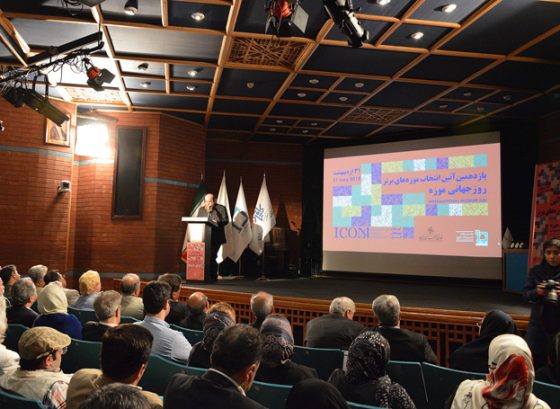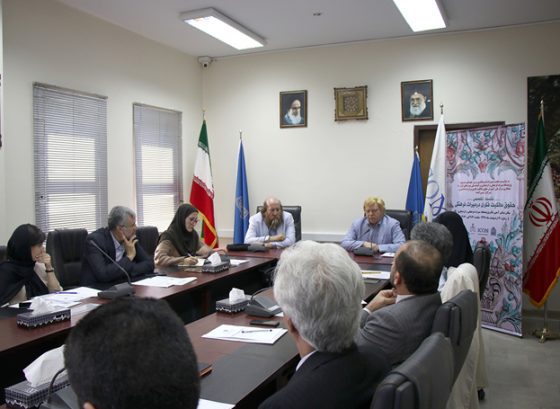First National Conference on Urban Rivers Restoration takes place in Iran

The Regional Center on Urban Water Management under the Auspices of UNESCO (RCUWM) organized the First National Conference on Urban Rivers Restoration on 9 May 2016, AVA Diplomatic reports.
The Conference brought together some 600 participants representing a wide variety of stakeholders, including Tehran Municipality, the Ministry of Energy, Iran Water Resources Management Company, NGOs, the private sector, and several foreign guests from Japan, Korea and Germany.
The participants exchanged best practices and lessons learned, and discussed the technical, legal, institutional and socio-economic dimensions of urban river restoration
Dr. Chavoshian, Director of RCUWM, opened the conference by delivering a report of the Conference secretariat, followed by several keynote speakers.
Dr. Ghalibaf, Mayor of Tehran, talked about some of the challenges that the city faces and the difficulties around urban river restoration. He stressed the importance of urban rivers for the peace of mind of the city’s inhabitants: “Whether we like it or not, life in mega cities is stressful. Green spaces and rivers are important for relaxation and recreation of the urban citizens.”
H.E. Mr. Meidani, Deputy Minister of Energy for Water and Wastewater Affairs talked about the different stakeholders involved in the management of water resources and stressed that the Ministry of Energy was ready to support any efforts to restore urban rivers.
Ms. Esther Kuisch Laroche, Director and Representative of the UNESCO Tehran Cluster Office said: “Urbanisation has come at a great cost to rivers – they have been heavily degraded to enable development, carry waste, supply drinking water and facilitate transport and industry. These stresses make rivers less resilient to the effects of climate change. This is why initiatives such as today’s gathering on the restoration of urban rivers are so important.”
The UNESCO Representative went on to talk about UNESCO’s work in sustainable water resources management and highlighted its importance in the context of the 2030 Sustainable Development Agenda:
“Reaching the ambitious objectives of the 2030 Agenda demands that we address universal access to drinking water and sanitation along with issues of quality and supply, in tandem with improved water management to protect ecosystems and build resiliency. Restoring our urban rivers will play an important part in this process.”
The UNESCO Representative highlighted in particular Sustainable Development Goals 6 and 11, which relate to water and sanitation and sustainable cities and communities.
After her speech, she unveiled the urban river symbol for public awareness together with the other keynote speakers.
The opening ceremony was followed by the inauguration of a side exhibition in which several consultants, contractors, municipalities, and RCUWM demonstrated their activities and achievements in urban river restoration.
In the afternoon, there were three panel discussions on “the existing situation of urban rivers and stakeholder involvement”, “best practices and lessons learned in urban river restoration”, and “technical, legal, institutional and socio-economic dimensions of urban river restoration”.
The following day, on May 10th, a group of some 50 participants visited the Farahzad river site to discuss the local urban river restoration experiences.




